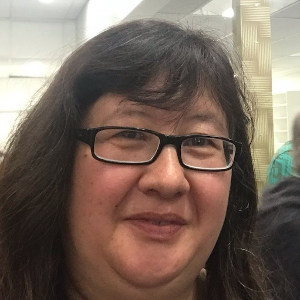Title: Management of acute rheumatic fever and rheumatic heart disease
Abstract:
In 2020 a research review was conducted that evaluated the use of rapid antigen detection testing (RADT) as a means of early and accurate detection of strep A infections among school children. It was argued that the use of RADT by Public Health Nurses would reduce the risk of complications of Group A Streptococcus (GAS) throat infection, and the risk of complications of developing Rheumatic Fever.
Aim: The aim of this current analysis is to explore reports (governmental reports, policies, research articles, annual reports) to determine any changes in screening, new initiatives, or managing GAS or prevention of the onset of Acute Rheumatic Fever (ARF) and Acute Rheumatic Heart disease (RHD) in Aotearoa New Zealand and Australia. New Zealand M?ori, Pasifika, and Aboriginal and Torres Strait Islander peoples are among the populations with the highest rates of ARF in the world and experience an inequitable burden of RHD. The process of conducting this review is content analysis. The framework for analysing the content in the reports is the principles of Primary Health Care which guide health and wellness promotion as well as fostering frameworks for preventing illness.
Findings: The following findings emerged under each key principle Accessible health care; barriers to healthcare were not only linked to physical locality but also the determinants of health (transport, income – cost of seeing GP, prescription costs. Appropriate technology: the evolving technological advancements within healthcare are essential to improve diagnostic testing. The RADT molecular point-of-care tests play a pivotal role in diagnosis and treatment regimens they are especially needed in remote areas where accessibility to laboratories for GAS testing requires lengthy waits and are redundant by the time results are returned to the ordering practitioner.
Health promotion: Programmes such as those offered through the Mana Kidz intervention have extended the service to incorporate a broad range of health promotion. This may mean existing services are resourced to provide more wrap-around care. Cultural sensitivity and cultural safety: Indigenous-led models of care to be established and ensure cultural safety and sensitivity, including community contribution and ownership of the processes and outcomes of the research programs.
Intersectional collaboration: The upgrade of management systems to improve coordination of care and effective delivery is required to meet the needs of the community.
Community participation: Is an essential element in reducing rates of RF through partnering with M?ori, Pasifika, and Indigenous agencies, the expertise of the community is required when planning, designing, and delivering initiatives and services related to RF prevention and management. This builds upon social capital, and strong communities based on trust, empowerment, and inclusive healthcare.
Audience Take Away Notes:
• Technologically savvy: Technological advances, the use of the Point of Care test can provide test results within five to ten minutes and molecular tests are more accurate and sensitive than the gold standard culture method
• Centralised data management system: A national database is required to keep track of patient’s health records and movement within the healthcare system
• Advocacy fuelled: Cultural safety and sensitivity reinforcement to reduce bias is a key factor in driving and achieving equity within the healthcare workforce
• Partnership with a cultural lens: For M?ori, Pasifika, and Aboriginal and Tortes Strait Island the importance of governance, co-designing culturally appropriate educational and health promotional resources to best meet the service user and communities needs in reducing Acute Rheumatic fever.
• Wrap-around service: A wrap-around service is needed to reduce the gaps within service operation and reduce the disparities, inequities, and service deficits that exist within service delivery



